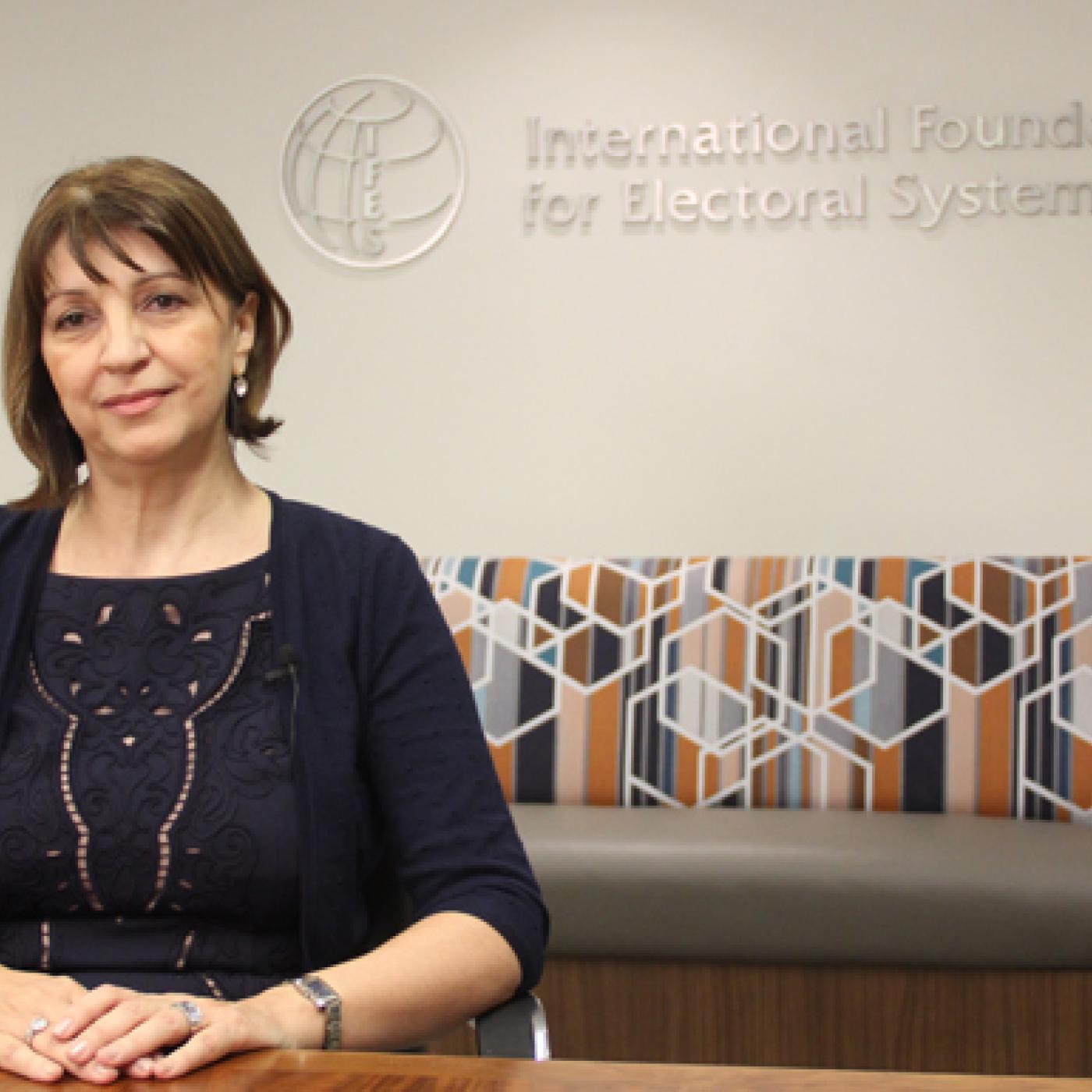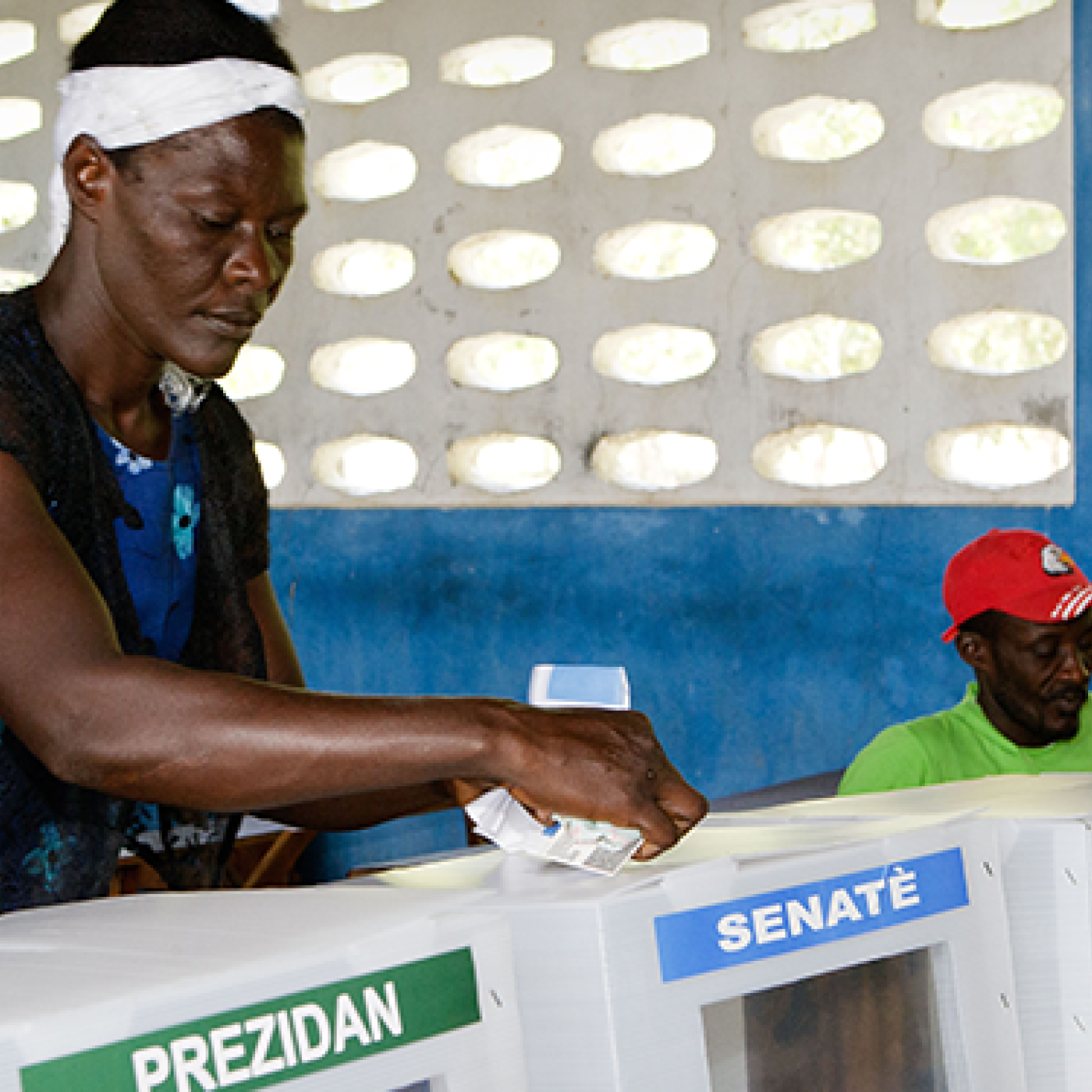Tools & Resources
Filter by
Type
Publication date
Language
Type
Publication date
Language
Election FAQ
Elections in Georgia: 2016 Parliamentary Elections
On October 8, Georgians will elect Representatives to the 150-member Parliament of Georgia (Sakartvelos Parlamenti) through a mixed parallel electoral system. Seventy-seven members will be elected through a closed-list proportional representation system to serve four-year terms.
News & Updates
Feature
IFES Conducts Training in Tbilisi on Inclusion of Persons with Disabilities
From August 8-9, 2016, the International Foundation for Electoral Systems (IFES), in coordination with the Central Election Commission (CEC) of Georgia, conducted a disability rights training on good practices for including persons with disabilities in elections.
News & Updates
Feature
Supporting Meaningful Global Youth Engagement
To mark International Youth Day 2016, the Consortium for Elections and Political Process Strengthening (CEPPS) reaffirms its commitment to supporting inclusive and meaningful global youth engagement. CEPPS recognizes that young people around the world face incredible individual, socio-cultural, and institutional challenges as they navigate their transition from the dependence of childhood to active citizenship in adulthood.
News & Updates
Feature
Podcast: Dialogues on Democracy featuring Meri Namgaladze
In this podcast, Gvantsa Tughushi, IFES Georgia Civic Education Project Assistant, interviews Meri Namgaladze, an IFES micro-grantee about her project, which focuses on disability rights.
News & Updates
Feature
Video: IFES Board Director, Irena Hadžiabdić Discusses Election Management and Gender Equality
Irena Hadžiabdić is an Election Commissioner for Bosnia and Herzegovina's Central Election Commission and an International Foundation for Electoral Systems (IFES) Board Director.
News & Updates
Feature
Georgia’s Election Commission Develops Draft Gender Policy with IFES Support
With IFES support, the Central Election Commission of Georgia (CEC) developed a draft Gender Equality Policy aimed at building the capacity of the CEC’s staff to create an environment for equal participation for women in the electoral process, ensuring its internal policies and practices support all staff, and developing relations with external stakeholders on gender equality.
News & Updates
Feature
IFES CEO Bill Sweeney’s Remarks: 6th Annual Conference of Election Management Bodies in Georgia
IFES has developed an electoral integrity portfolio that defines international standards and best practices and builds on nearly thirty years of real-world experience in strengthening the effectiveness of election management bodies (EMBs) and organizing credible elections. To better understand election integrity issues, pinpoint stakeholder accountability, and develop effective risk mitigation strategies, IFES has developed a conceptual framework that distinguishes between systemic manipulation, fraud, and malpractice.
Election FAQ
Haiti Run-off Elections Postponed
On January 24, Haiti will hold run-off presidential and partial second-round legislative elections. These elections were originally scheduled for December 27, 2015, but were postponed by the Provisional Electoral Council.
News & Updates
Feature
IFES Conducts First CRPD Training with Georgian Public Defender’s Office
Persons with disabilities around the world encounter barriers to their political participation, and countries like Georgia are taking steps toward more inclusive policies and practices. In December 2013, Georgia ratified the United Nations Convention on the Rights of Persons with Disabilities (CRPD), which calls on states to recognize the rights of persons with disabilities and to adopt appropriate measures to ensure that those rights are fully enjoyed.
News & Updates
Feature
Post-Election Q&A: Haiti’s 2015 General Elections
On October 25, 2015, Haitian citizens returned to the polls for the second time this year to elect the President of Republic and members of the Senate, Chamber of Deputies, and municipal governments. These elections were particularly critical to regain Haiti’s democratic stability, as they have been postponed numerous times since 2011 due to a political impasse between the government of President Michel Martelly and the opposition over the passing of an election decree.











